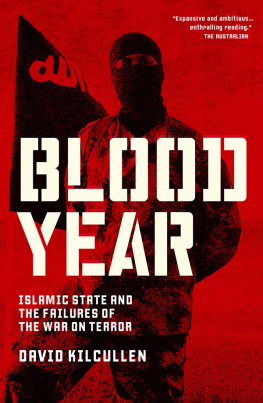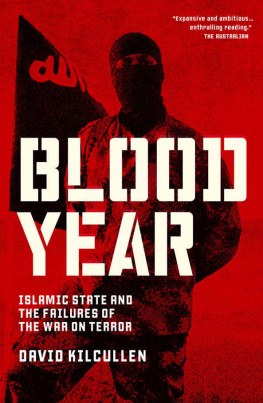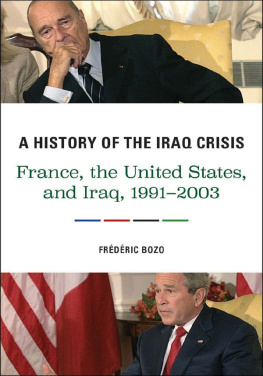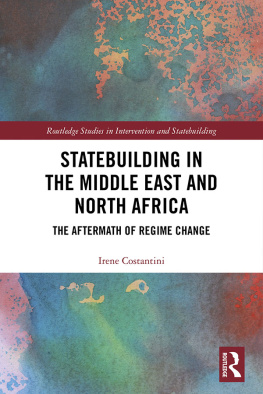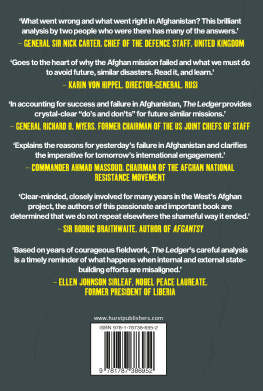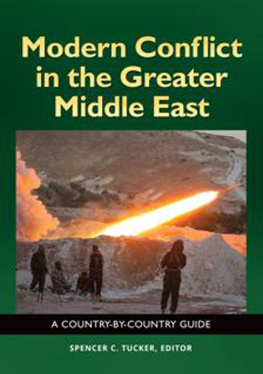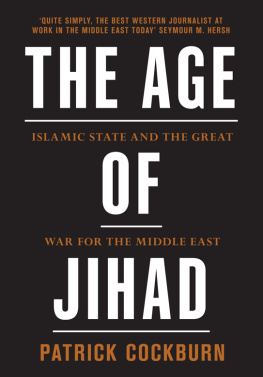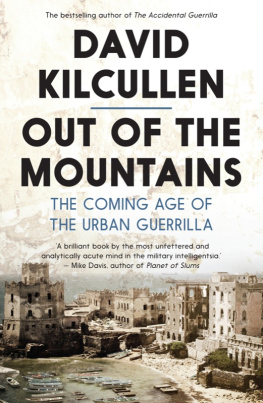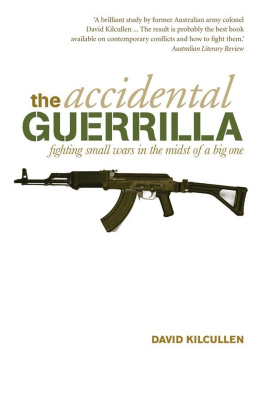DEBACLE
United Arab Emirates, November 2014
My driver pulls up to a resort in the Empty Quarter. Its just after dawn, and weve been driving for hours across the desert from Abu Dhabi. Were near the Saudi border now; past this point the bare sand stretches for hundreds of empty miles. The place is all minarets and battlementsClassical Arabia as imagined by a hotel designer with grand tastes and an unlimited budget. We cross a causeway between dunes and snake into a courtyard past black BMWs, a silver Mercedes and two camouflaged jeeps.
Over the last mile weve been penetrating a series of increasingly overt security layers. Helicopters hover beyond the crest, search teams trawl the complex for bombs, and dogs bark from the perimeter checkpoint where police search cars and bags. All but one entrance is sealed; there are no other guests. Inside are more dogs, the buzz of radios and a counter-assault team: burly guys of indeterminate ethnicity, with dark glasses and skin-tone earpieces, holsters visible below grey suits, machine pistols discreetly within reach. Sentries step out of doorways to check credentials. A silver blimp glints overhead, packed with U.S.-made sensor technology designed for the Iraq War and positioned to detect the visual or heat signature of anyone approaching across the desert. The sponsor is taking no chances.
Im rumpled from travel, freezing from the air-conditioned car, and could really do without all this drama. I stretch, climb out and check my watch: still on Sydney time. Ive been on the move for twenty-four hours, fifteen of those on the red-eye from Australia, and Im in desperate need of a double espresso, some sunlight, and a piss.
However surreal the setting, this is deadly serious: a conference, long-scheduled, that has turned into a crisis meeting in a year of massacres and beheadings, fallen cities and collapsing statesthe unraveling, in mere weeks, of a decade of Western strategy. Former prime ministers and presidents, current foreign ministers, generals, ambassadors and intelligence chiefs are here, with White House staffers, presidential envoys, and leaders from the Middle East and Africa. There are North Americans, Brits, Aussies, Iranians, Russians, Chinese and Indians. Two well-known journalists have agreed not to attribute what people say.
Beside the two dozen VIP delegates and their aides, a few scruffy field guys like me are hanging around the fringes to present research or brief the plenary sessions, though at such gatherings the real business gets done by grown-ups in bespoke suits, at side meetings we never see. The sessions have names like Syria and Iraq: In Search of a Strategy, North Africa in Crisis and Islamist Terrorism and the Region. Maybe its my jetlag, but people look dazed to melike morning-after partygoers. The hangover is a geopolitical one: after a wild decade of war and chaos, the rise of ISIS, the failure of the Arab Spring, the fracturing of Iraq and the spillover from Syria have suddenly, dangerously destabilized the Middle East and North Africa.
In the northern summer of 2014, in less than 100 days, ISIS launched its blitzkrieg in Iraq, Libyas government collapsed, civil war engulfed Yemen, a sometime small-town Iraqi preacher named Abu Bakr al-Baghdadi declared himself caliph, the latest IsraelPalestine peace initiative failed in a welter of violence that left more than 2,200 people (mostly Palestinian civilians) dead, and the United States and its allies, including the United Kingdom and Australia, sent troops and planes back to Iraq. Russia, a key sponsor of Bashar al-Assads tyrannical regime in Damascus, reignited Cold War tensions by formally annexing Crimea (which Russian marines, politely masquerading as green men, had not-so-stealthily seized in the spring), sent submarines and long-range bombers to intimidate its neighbors in their own seas and airspace, and armed and sponsored Ukrainian rebels who shot down a Malaysian airliner with huge loss of innocent life. Iran continued its push to become a nuclear threshold power, supported Assad in Syria, and yet became a de facto ally of the United States in Iraq as Tehran and Washington sought, each for different reasons, to bolster the Baghdad government.
As this disastrous year closed, the fourth winter of war settled over Syria, and nine million displaced Syrians languished in freezing mountain camps with little prospect of ever going home. Half of Syrias twenty-three million people depended entirely on humanitarian aid. More than 200,000 had died; babies born in the camps that winter froze to death within days. Refugees and displaced persons reached historically unprecedented numbers, fuelling a worldwide epidemic of suffering, people smuggling and exploitation of asylum-seekers. Across the increasingly imaginary Iraqi border, thousands had been displaced, decapitated, sold into sexual slavery, shot in the street or crucified for minor infractions of sharia lawas idiosyncratically interpreted by whatever local ISIS thug happened to make it his business. Panic pervaded Baghdad, and Irbil (capital of Iraqi Kurdistan) became a frontline city, within sound and occasional reach of the guns.
Islamist fighters from the Middle East, Europe, Australia, the Americas and all parts of Asia and Africa poured into Syria and Iraq at a rate twelve times higher than at the height of the anti-American war in 2007, swelling ISIS to more than 30,000 (for comparison, al-Qaeda, at its peak before 9/11, never had more than 25,000 full-time fighters). Thousands poured across Syrias frontier with Turkey, a NATO member that nonetheless tolerated relatively free movement to (or, increasingly, from) the conflict. ISIS provinces, or wilayat, appeared in Libya, Afghanistan, Pakistan, North Africa, the Caucasus and Egypt, and extremists in Indonesia, Malaysia and Nigeria swore allegiance to Baghdadis caliphate. Attacks by ISIS-inspired terrorists hit Europe, America, Africa, Australia and the Middle East. Thirteen years, thousands of lives and billions of dollars after 9/11, any progress in the War on Terrorism had seemingly been swept away in a matter of weeks.
On 10 June 2014, ISIS seized Mosul, anchor of northern Iraq and home to more than two million. Twelve days before the citys fall, President Obama had betrayed no inkling of impending collapse in a speech at the United States Military Academy at West
When I first spoke at West Point in 2009, we still had more than 100,000 troops in Iraq. We were preparing to surge in Afghanistan. Our counter-terrorism efforts were focused on al Qaedas core leadership Four and a half years later, as you graduate, the landscape has changed. We have removed our troops from Iraq. We are winding down our war in Afghanistan. Al Qaedas leadership on the border region between Pakistan and Afghanistan has been decimated, and Osama bin Laden is no more [T]odays principal threat no longer comes from a centralized al Qaeda leadership. Instead, it comes from decentralized al Qaeda affiliates and extremists, many with agendas focused in countries where they operate. And this lessens the possibility of large-scale 9/11-style attacks against the homeland. [emphasis added]
What happened? How could the president so misjudge the situation, days before the Mosul debacle? How did we get here? Can we recover, and what does a coherent strategy look like now?
Blood Yearwhich builds on, updates and expands a shorter essay published in April 2015is my attempt to answer those questions. It draws on interviews with communities and combatants across the region, results from my own fieldwork, the work of my research teams on the ground in Iraq and Syria, and analysis by other well-informed observers and researchers. The answer, like many things in war, is hard but simple: it begins with the recognition that the Wests strategy after 9/11derailed by the invasion of Iraq, exacerbated by our addiction to killing terrorist leaders, hastened by precipitate withdrawal from Iraq and Afghanistan, opportunism in Libya, and passivity in the face of catastrophe in Syriacarried the seeds of disaster within it. And until that strategy changes, those disasters will continue.
Next page
